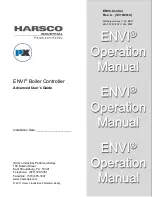
COM Express Carrier Type 2
Page 39 of 103
Design Guide
6
USB Ports
A COM Express module must support a minimum of four USB ports and can support up to eight USB
ports. All of the USB ports must be USB2.0 compliant. There are four over-current signals shared by the
eight USB ports. A carrier must current limit the USB power source to minimize disruption of the carrier
in the event that a short or over-current condition exists on one of the USB carriers. A module must fill
the USB carrier starting at port 0. Although USB signals use differential signaling, the USB specification
also encodes single ended state information in the differential pair, making EMI filtering somewhat
challenging. Carriers that are internal to the carrier do not need EMI filters. A USB port can be powered
from the carrier main power or from the carrier suspend power. Main Power is used for USB devices
that are accessed when the system is powered on. Suspend Power (VCC_5V_SBY) is used for devices
that need to be powered when the module is in Sleep-State S5. This would typically be for USB devices
that support Wake-on-USB. The amount of current available on VCC_5V_SBY is limited so it should be
used sparingly.
6.1
USB Carrier Signals Definition
All eight USB carriers appear on the COM Express A-B connector as shown in Table 7.
Table 7 USB Signals Definition
Summary of Contents for COM Express Carrier
Page 1: ...COM Express Carrier Type 2 Design Guide October 2009 Confidential and Proprietary ...
Page 17: ...COM Express Carrier Type 2 Page 17 of 103 Design Guide Figure 1 COM Express Type 2 Connector ...
Page 36: ...Page 36 of 103 COM Express Carrier Type 2 Design Guide Table 5 SDVO Layout Requirement ...















































